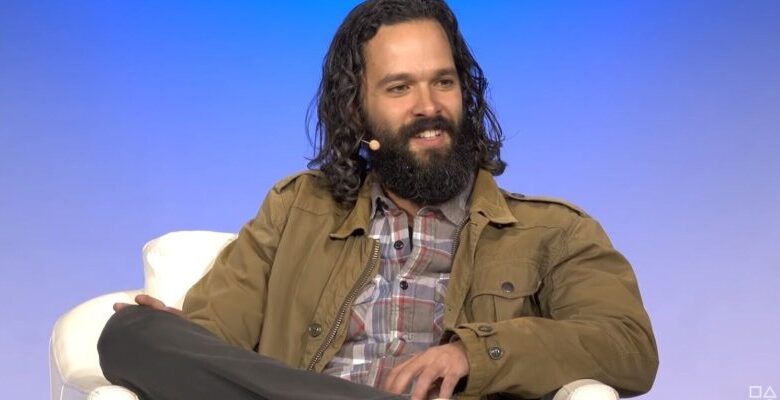Neil Druckmann Claims Generative AI Will “Push Boundaries” For Storytelling In Games And “Revolutionize” Game Creation


Neil Druckmann has become one of the world’s most well-known game developers for his part in creating The Last Of Us, a game that, at the time of its original launch, pushed boundaries in the games industry as to how players saw stories in games could be told.
The Last Of Us and its sequel The Last Of Us Part II stand as cinematic and narrative-focused works of excellence in the minds of many a gamer because of this dedication to strong, high-quality storytelling, crafted by amazing artists.
In a new interview where Druckmann is asked, by Sony, how he sees the world of creative works changing in the next decade, he claimed boundaries were going to be pushed again, though this time it would be through generative AI.
“AI is really going to revolutionize how content is being created, although it does bring up some ethical issues we need to address.
With technologies like AI and the ability to do motion capture right from home, we’re reducing both costs and technical hurdles, opening the door for us to take on more adventurous projects and push the boundaries of storytelling in games.
This evolution is truly empowering creators to bring their visions to life without the traditional obstacles.”
This is the first answer attached to Druckmann in the interview, and it’s also the only time he makes mention of AI’s “ethical issues,” as he calls them. The rest of the interview he continues to talk up how useful he believes AI will be to the creative process.
As if Naughty Dog hasn’t been doing this, Druckmann claims that “AI will allow us to create nuanced dialogues and characters, expanding creative possibilities,” though he also clarifies that this only works when AI and tools like it are used with precision.
“It’s crucial to precisely direct these tools to achieve the intended outcomes.” Druckmann also goes on to claim that “These tools increase our efficiency, enabling us to achieve more with less,” before explaining how Naughty Dog uses “a proprietary engine that automates environmental design using predefined rules” to speed up environmental design.
Which, it should be noted, is a vastly different use case for generative tools in comparison to generative AI for writing and forming story.
Generative AI tools in game development continues to be a hotly debated topic, with many, as Druckmann does here, claiming it can lower the bar to access for new creators getting into game development, and that it can empower creatives further than ever before.
Others recognize the fact that the human brain is endlessly more creative than a computer can be, and will always possess creative abilities unattainable to generative AI tools.
Druckmann’s words have caused plenty of negative reactions on social media, with plenty confused as to why Druckmann would be throwing his hat in with AI as the future, after having built a career off creating stories made by really talented people who already pushed boundaries.
Daniel Ahmad, director of research and insights at Niko Partners who specifically covers the games industry in Asia, makes the point that generative AI is already being heavily used by developers in Asia.
“One thing people need to realize is that more than half of games developers (Especially in Asia / China) are using generative AI for professional game development at this point.”
https://x.com/ZhugeEX/status/1793740237320909089
He clarifies that AI is mostly being used in the earliest stages, such as pre-production and concept work, the parts of the process where brainstorming is key.
Still, in such a competitive market as the games industry, one where two competitive markets in tech and entertainment align, any chance to get an edge over the competition is one that company leaders generally take. If your competition is getting faster due to AI, then capitalistic logic follows you need to find a way to get faster as well, and the answer for a lot of people will be to use AI too.
That’s the business reality to seeing AI being pushed in the games industry from those, like Druckmann, who it wouldn’t be expected from. He could also not have thought about it like this, and is thinking purely from a creative’s perspective.
None of that changes the aforementioned fact that a computer or generative AI tool will never be able to beat the truly endless creativity that comes from the human brain.
There’s definitely an industry-wide conversation around AI happening, and there are use-cases for it that can and likely will be implemented across studios as a potential time-saving measure.
But those “ethical issues” Druckmann speeds past deserve more thought than he seems to deliver here, as he seemingly undermines the work he and so many other talented developers at Naughty Dog have done in the last decade.
To even indirectly imply that previous work from the rest of Naughty Dog’s amazing team was lacking before, and won’t be now due to AI, is callous at best.
It’ll be interesting to see if the public reaction to Druckmann’s comments stir a response from him.
Source – [Sony Group via VGC]



